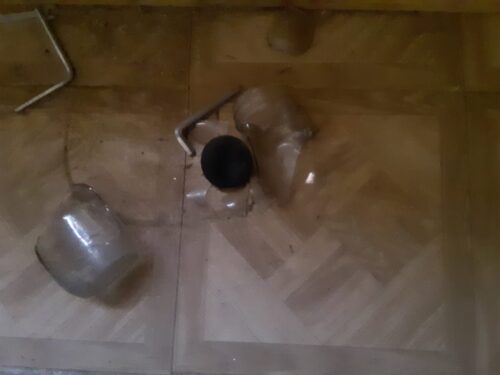
Hi, Phoenix here; today I want to level with you–I am burnt out from juggling a full-time job, the homestead, home renovations, recovery from a broken wrist, and navigating various interpersonal relationships. I’ve been exhausted before, which usually makes me more susceptible to my PTSD, depression, and anxiety symptoms. During such instances, I have been able to take time off for self-care, consisting of drinking lots of water, eating three healthy meals a day, getting 8 hours of sleep a night, exercising, meditating, and reaching out to others for help when needed. All these activities serve to get my body out of fight-or-flight mode and lower my anxiety. Meeting these basic physiological needs, I am then able to address higher-level needs like maintaining relationships, bettering myself, and sharing my experiences with others (check out Maslow’s Hierarchy of Needs). But this time it’s different. I’ve been exhausted since March and burnt out since mid-July.
It will be several more weeks till I can take time to recuperate.
I’m an environmental scientist, and over the next several weeks I will be doing fieldwork with colleagues. This will be physically demanding outdoor work in the August heat. So I need a game plan to survive till I can take time off. I want to share this plan for several reasons: accountability for myself, an example for others who might be going through similar situations, and a truthful glimpse into my journey toward sustainable living.
- Food: I will eat a filling breakfast even through a nervous stomach by having something ready to eat that I really enjoy eating, maybe keto cereal or pancakes. I will have healthy snacks when I’m outdoors, maybe protein bars and mixed nuts. I will prepare lunches and dinners ahead of time so all I have to do is heat them up or eat them cold, maybe some hearty salads with chicken or fish.
- Water: In the morning instead of having dehydrating caffeine, I will drink water with electrolytes. While outdoors, I will carry water reservoirs and drink water every 20 minutes. At night, I will avoid dehydrating alcoholic beverages and instead drink more water with electrolytes.
- Cooling: The temperature will be in the high 90s to low 100s. I will wear a cooling vest, light clothing, and a hat to protect myself from the heat. I will take a short break every 20 minutes and a long break every 3-4 hours to avoid heat exhaustion.
- Sleep: To minimize our time outside in the heat of the day, we will be starting fieldwork very early in the morning. To make sure I get enough sleep, I will go to bed early, maybe by 8 pm.
- Exercise: Although the fieldwork itself will be physically demanding, I will do physical therapy exercises every evening to continue the recovery of my wrist.
- Meditation: Of course, taking care of myself mentally will be just as important as taking care of my physical health. I will meditate before going to bed every night to keep my anxiety at bay.
- Support network: Fortunately, I will be in the field with supportive colleagues. We will help each other and keep an eye out for signs of heat exhaustion, anxiety, etc. I will reach out to them if I feel unwell.
I’ll be referring to this list of promises to myself frequently over the next few weeks. After fieldwork, I will take time off to just rest and recuperate. Thankfully, K is able to take care of the homestead while I focus on work, demonstrating the importance of partnership in homesteading, the subject of a near-future post.
Next Blog Post: Part 2: Burnout–Recuperation (by Phoenix)
